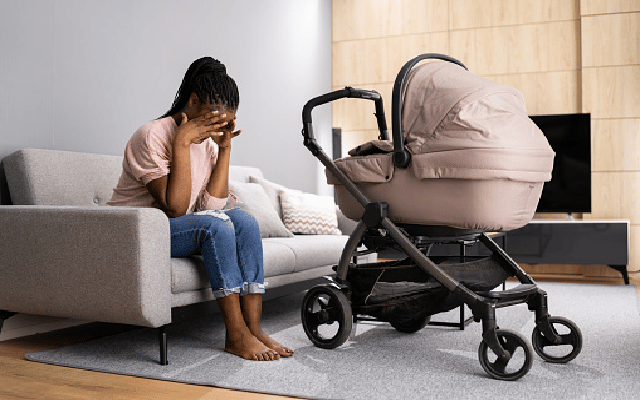Being a parent is exciting but can also be tiring and overwhelming. It’s normal to have feelings of worry or doubt, especially if you are a first-time parent. However, if your feelings include extreme sadness or loneliness, severe mood swings and frequent crying spells, you may have postpartum depression.
Postpartum depression (PPD) is a type of depression that happens after someone gives birth. Postpartum depression doesn’t just affect the birthing person. It can affect surrogates and adoptive parents, too. People experience hormonal, physical, emotional, financial and social changes after having a baby. These changes can cause symptoms of postpartum depression.
If you have postpartum depression, know that you are not alone, it’s not your fault and that help is out there. Your healthcare provider can manage your symptoms and help you feel better.
Postpartum depression is a far more serious condition than baby blues, affecting about 1 in 7 new parents. If you’ve had postpartum depression before, your risk increases to 30% each pregnancy. You may experience alternating highs and lows, frequent crying, irritability and fatigue, as well as feelings of guilt, anxiety and inability to care for your baby or yourself. Symptoms range from mild to severe and may appear within a week of delivery or gradually, even up to a year later. Although symptoms can last several months, treatment with psychotherapy or antidepressants is very effective.
• Have crying spells.
• Feel overwhelmed.
• Lose your appetite.
• Have trouble sleeping.
• Have sudden mood changes.
Postpartum depression is treated differently depending on the type and severity of your symptoms. Treatment options include anti-anxiety or antidepressant medicines, psychotherapy (talk therapy or cognitive behavioural therapy) and support group participation.
Treatment for postpartum psychosis may include medication to treat depression, anxiety and psychosis. You may also be admitted to a treatment centre for several days until you’re stable. If you don’t respond to this treatment, electroconvulsive therapy (ECT) can be effective.

















